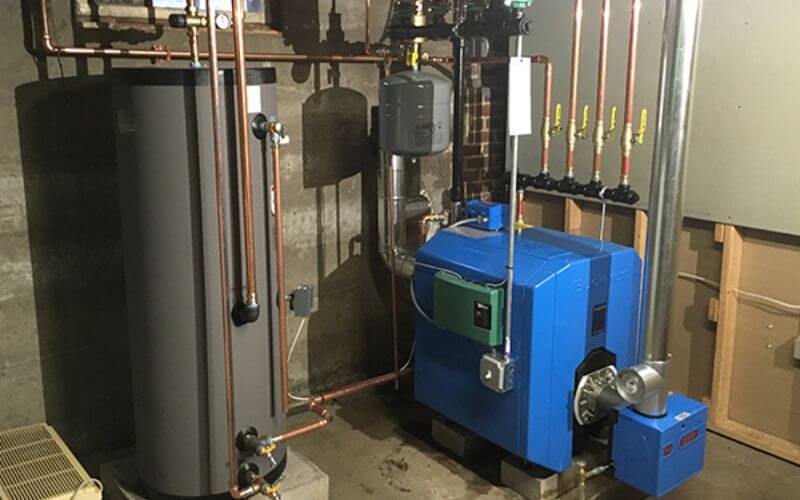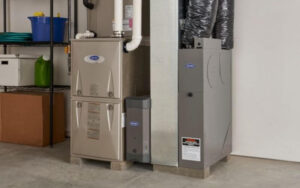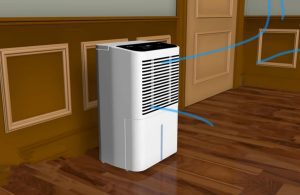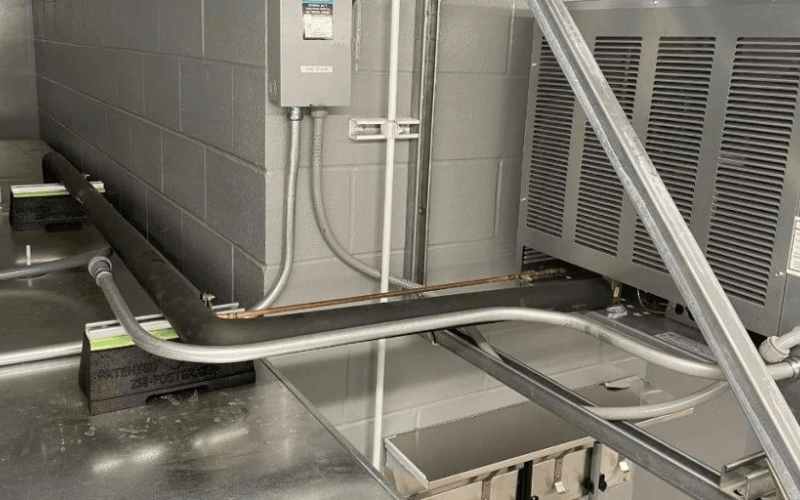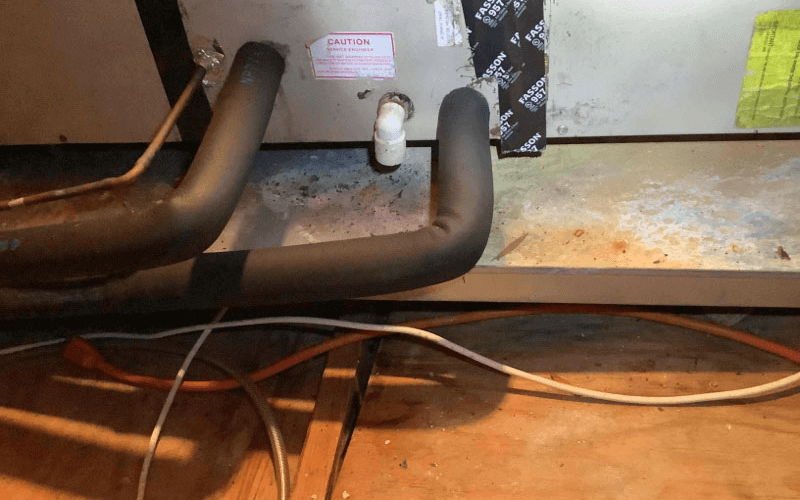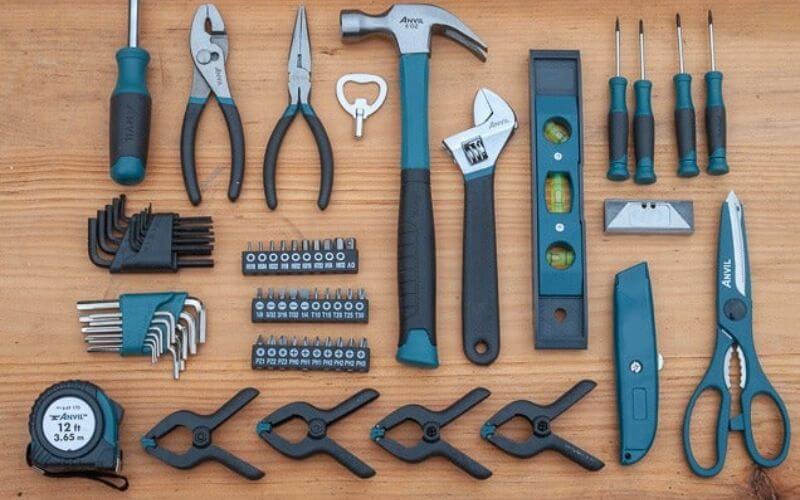As winter approaches, many homeowners turn to kerosene furnaces for heating. But what if the oil runs out and you cannot fill the furnace as planned? Can you put diesel in an oil furnace? We have researched, and here is the answer.
Diesel is available at gas stations and can be used in place of fuel oil in almost any furnace. Diesel and #2 kerosene are both medium-heavy petroleum distillates that produce approximately the same amount of heat and can be burned in the same system. Because of this, diesel can be used as first aid in an emergency.
The potential use of kerosene furnaces and diesel fuel requires further consideration. Continue reading to learn why this fuel may be beneficial to you.
Table of Contents
ToggleIs Diesel Fuel The Same As Kerosene?
As diesel oil burns similarly to the oil used to heat your home, it is acceptable as a temporary fill in your kerosene furnace. It is critical to recognize this.
Diesel is not a permanent substitute for kerosene in heating systems. The continued use of the furnace will eventually compromise its functionality. Diesel burns slightly hotter than fuel oil and will ultimately damage furnace components.
Can you use diesel for heating oil? Recognize that diesel should only be used as a last resort. It should be noted that diesel is only an acceptable substitute for #2 kerosene. #2 refers to the weight and grade of oil, and this grade of fuel oil is used in almost all fuel oil furnaces.
If you’re using a different grade of oil in your heater, diesel is unlikely to work. Please ensure that the oil type used in your furnace is No. 2 kerosene.
Also check: How to Turn on a Wall Heater in House?
Can I Use Off-road Diesel In My Oil Furnace?
Off-road diesel is red, indicating that it is tax-free and suitable for use as off-road fuel. Examples include construction fuels, equipment never used on public roads, agricultural services, and kerosene boiler fuels. Can you, however, use these types of diesel fuel in your home furnace to heat it?
In general, the answer is yes. Tinted off-road diesel is a viable substitute for fuel oil. Today, most colored and off-road diesel is ultra-low sulfur diesel.
The EPA and most state laws classify kerosene as low, medium, or high sulfur. This means that while some fuel oils cannot be colored diesel (if used for off-road equipment or agricultural applications), colored diesel or off-road diesel can.
What Factors Influence The Price Of Kerosene And Diesel?
You might notice a difference if you buy diesel and kerosene in exact amounts. This is true even if the state taxes diesel but not heating oil. The price of crude oil at any given time is the primary determinant of both fuel costs.
In many ways, kerosene and diesel fuel are similar fuels. The fact that the prices are the same demonstrates this. However, each of these fuels has an inherent cost that sometimes makes one more expensive than the other.
Diesel is produced to meet stringent sulfur standards that fuel oil does not have to meet, which drives its price. Some taxes are expressly imposed. Kerosene, unlike diesel, has to bear the costs of transportation. You can get the diesel at your local gas station, but you’ll need to have the fuel oil delivered.
To add to the cost, trucks transporting fuel oil are much smaller than diesel trucks. This means that less fuel will be delivered per truck. All of these factors are reflected in the price of oil.
While the products are very similar, differences in handling affect the price. Diesel may appear a low-cost alternative but remember that it will cause damage and be costly to repair later.
The Impact of Using Diesel in an Oil Furnace
While diesel fuel can technically be used in an oil furnace, it is not recommended due to the differences in their nature. Here are some of the effects of using diesel on your oil furnace:
1. Efficiency Loss
Because diesel fuel additives are not designed for heating systems, they may reduce efficiency and increase fuel consumption.
2. Maintenance Concerns
Because diesel contains different additives, it may necessitate more maintenance and potentially damage your furnace.
3. Concerns about the environment
Using diesel in your furnace may result in higher emissions due to its sulfur content, which can be harmful to the environment.
Considerations for Legality and Safety
1. Local Rules and Regulations
Check with your local authorities to ensure that using diesel in your oil furnace is legal in your area.
2. Manufacturer Recommendations
Using diesel in an oil furnace may void the manufacturer’s warranty and pose safety risks.
Five Gallons Of Diesel Will Last How Long In An Oil Tank?
Furthermore, 5-10 gallons of diesel or kerosene will last approximately 1-2 days. Keep this in mind as you decide how much diesel to buy between now and your next kerosene delivery.
Consider adding more fuel to your 10-gallon diesel fuel if you have a larger home. This will keep your home warm until your next delivery arrives.
Advice On Using Other Fuels In Your Home Furnace:
In the short term, diesel is an acceptable alternative to kerosene. However, it is not gasoline. Gasoline is easily distilled and, if placed on the furnace, can cause damage and other operational issues. Under no circumstances should you run your furnace on gas for an extended period.
- Please keep the following in mind if you store diesel fuel at home for heating purposes:
- Fuel should be stored in yellow containers that are clearly labeled.
- Diesel should not be stored for more than six months because it will degrade and become potentially dangerous. Diesel can have additives added to it to extend its shelf life.
Within one year, treated fuel must be used or disposed of. Finally, Diesel Furnace Oil can only be replaced in one direction. This means that vehicles cannot use heating oil instead of diesel fuel. It lacks the lubrication required to keep the engine running correctly without causing damage or being potentially dangerous.
Also check: Why Does My Space Heater Keeps Shutting Off?
Conclusion:
Diesel is accepted as a first-aid solution when you run out of kerosene to keep your home comfortable and warm. Understanding its limitations and what it can do could be an excellent temporary solution to a bad situation. We hope this guide has helped you better understand what Diesel can do for you as an Oil Heater user.
FAQs
How long can I run my oil furnace on diesel?
You should also never keep diesel fuel for more than six months because the quality degrades and becomes unsafe. You can use fuel additives to extend the life of the fuel, but even then, storing for a year is the most prudent option. However, this should only be a short-term solution!
Is furnace oil equivalent to diesel fuel?
Home heating oil, also known as furnace oil, is a byproduct of petroleum distillation. Due to their overlapping properties, it is frequently confused with diesel. However, they are not the same; their chemical compositions differ.
Is it possible to burn diesel in a waste oil furnace?
One of the most important principles to remember when using a waste oil furnace is fuel management. Waste Oil Heaters are U.L. approved for the combustion of motor oil, transmission fluid, hydraulic fluid, diesel fuel, and fuel oil.
What kind of fuel is used in an oil furnace?
Many residential and commercial oil furnaces can burn both kerosene and heating oil. However, when used to heat buildings, the differences in the post-distillation refinement process give these oils different advantages and disadvantages.
How long will ten gallons of diesel fuel last in a furnace?
While more expensive than heating oil, both fuels will burn safely on your heating oil burner. Depending on the temperature and size of your home, 5 or 10 gallons will usually last a day or two.
| Image | Product | Features | Price |
|
Best Seller

|
Dreo Smart Wall Heater, Electric Space Heater for Bedroom 1500W |
120° Vertical Oscillation, Adjustable Thermostat, |
$129.99
|
|
Best Seller
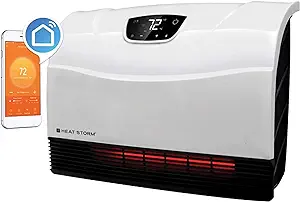
|
Heat Storm HS-1500-PHX-WIFI Infrared Heater |
1500-PHX-WIFI Infrared Heater, Wifi Wall Mounted |
$104.57 |
|
Best Seller

|
nfrared Heater with WiFi – Wall Heater – Electric Heaters for Indoor Use |
Bedroom, Small Room,- Energy Saving 1500 Watt PTC Quartz Heater |
$119.99 |
|
Best Seller

|
|
PTC Ceramic Electric Heater for Bedroom with Thermostat, |
$49.99 |
|
Best Seller

|
Airchoice Electric Heater, 1500W Space Heater, Wall Mounted Room Heater with Stand, |
Energy Saving, Timer, 3 Modes, Quick Heat Electric Space Heater, |
$48.35 |

